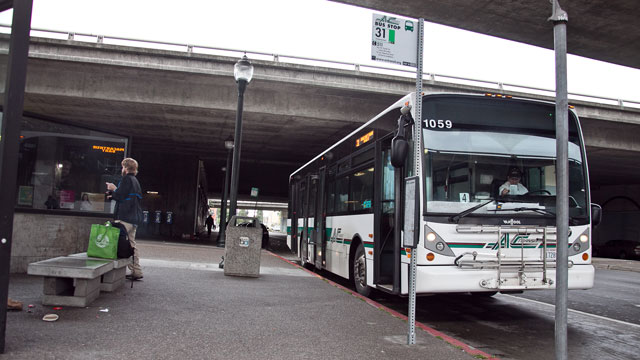
Update, 4:40 p.m.: Gov. Jerry Brown just announced that he is appointing a board to investigate the contract dispute between AC Transit and Amalgamated Transit Union Local 192 – ending the immediate threat of a strike. The three-person board is to report back to Brown in seven days. After receiving the report, and based on its findings, Brown can then petition a court to call a 60-day cooling-off period.
Brown's letter to both AC Transit and ATU Local 192 said:
At the request of the Alameda-Contra Costa Transit District, I am appointing a board to investigate the strike noticed by ATU Local 192 that threatens to disrupt public transportation services in the Bay Area. This board is appointed under the authority of Government Code section 3612, subdivision (a), because a strike will, if permitted to occur, significantly disrupt public transportation services and endanger the public’s health, safety, or welfare.
The three individuals appointed to the board of investigation are:
Peter Southworth, Chairperson
Josie Camacho
Micki CallahanThe Government Code prohibits any strike or lockout while the board completes its investigation. (Gov. Code, § 3612, subd. (b).)
The board is directed to provide me with a written report within seven days. For the sake of the people of the Bay Area, I urge both sides to take this matter seriously and to continue working to find a fair solution.
Southworth has been deputy secretary and general counsel at the California Transportation Agency since 2013. He held multiple positions at the California Attorney General’s Office from 1997 to 2013.
Camacho has been executive secretary-treasurer at the Alameda Labor Council since 2010. She was director of constituent services in the Office of Mayor Ron Dellums from 2007 to 2009. She is a founder of the national Asian Pacific Islander constituency group and has served on the board of Asian Immigrant Women Advocates and Congresswoman Barbara Lee's advisory committee.
Callahan has been director of Human Resources for the City and County of San Francisco since 2007, where she served as employee relations director in 2005. She held multiple positions at the State Mediation and Conciliation Service from 1996 to 2005.